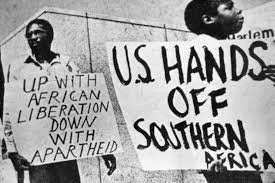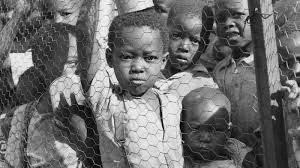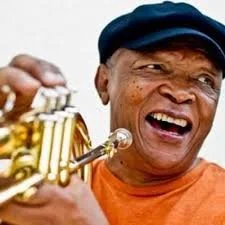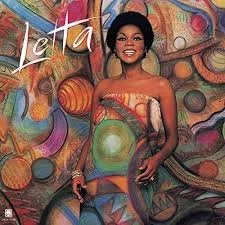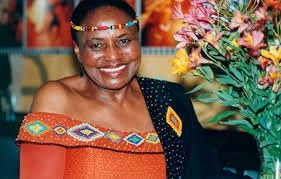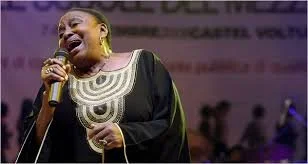The Prominent Voices of Anti-apartheid South Africa
Apartheid was a systemic and institutionalized discrimination of indigenous South Africans with an enforced hierarchy which positioned the white-majority dominant over the black-majority. Apartheid is a synonym for racism as experienced by American blacks. It is a fancy term used to embellish and camouflage hatred for the other. In South Africa, this anomaly began in 1948 and presumably ended with the emergence of Nelson Mandela as South Africa’s President in 1994.
Apartheid operated along the lines of separatism which engendered racialized classification, gentrification- being a lack of co-existence along the lines of housing. Non-whites resided in impoverished homelands and townships and were denied access to high-brow areas and superior public facilities. They were politically disenfranchised and voices of dissent encountered state suppression. Key figures like Steve Biko and Nelson Mandela were murdered and incarcerated, respectively for their opposition to the lived realities of the time.
Beyond the realm of politics, musicians assumed the roles of whistleblowers and oppositionists, as they spoke and sang against an oppressive white government. Many fled into exile for their candid postures and the volatile social environment like Hugh Masakela, Letta Mbulu, Miriam Makeba, etc.
Masakela
Mbulu
In the wake of the Sharpeville massacre on March 21, 1960 where 69 people were shot and killed by the Apartheid-police during a peaceful protest, Masakela left for England. He later moved to the US and returned home when apartheid crumbled. Mbulu left in 1964 to the US and lived there for 26 years and returned in 1991, after Mandela’s release from prison. She thrived musically, nonetheless, and would work with Michael Jackson on the song “Liberian Girl”, where she opens with a swahilian chant.
Miriam Makeba’s appearance on an anti-apartheid documentary earned her a life ban from the apartheid government in 1960. She moved to the US, where she met and married her kindred spirit and political activist, Stokely Carmichael, one of the agents of subversion in 1960’s racist America. He was a part of the Black Panther Party and also a leading man in the creation of the Black Power Movement. Makeba’s matrimony with Carmichael earned both a ban from the US government. With the solidarity and support of the Guinean president, Sekou Toure, both found a home in Guinea. Makeba also lived in Ghana and Algeria where she was granted honorary citizenship. She also lived in Belgium and continued to perform in Europe and Asia. She would return to South Africa in 1990.
However, the South African singers and people were neither left isolated nor ignored, as international singers demonstrated their solidarity equally through songs and performances in protest against apartheid. Some like Stevie Wonder who made one of the most memorable anti-apartheid songs ever, “It’s Wrong (Apartheid)” were banned from South Africa.
It feels sordid and abominable to even have a favourite song from the tapestry of a barbaric and diabolical system like apartheid. But, we are dealing with a musical maestro like Stevie Wonder. The song “It’s Wrong (Apartheid)” is performed interchangeably in English and Swahili. It synthesizes the call and response technique and has the catchiest rhythmic beat. Wonder correlates apartheid with slavery and the holocaust, and directly taunts and reprimands the oppressor. It was a heinous and diabolical crime against indigenous South Africans which ought to have been adjudicated by the ICC, but the institution’s jurisprudence focuses solely on non-white governments. Otherwise, George Bush ought to have been tried for his false “weapons of mass destruction in Iraq” rhetoric which was his justification to invade the said country.
On the African continent, Nigeria’s centralization of Africa at the core of her foreign policy naturally became anti-apartheid and pro-liberation for Black South Africans and the African National Congress (ANC) and worked proactively towards her liberation. The Nigerian media landscape was awashed with South African music and documentaries about the Black experience. Many Nigerians became acquainted with the music of Yvonne Chaka Chaka, Brenda Fassie, Lucky Dube, etc. They watched footages of the apartheid-police’ viciousness and violence against Black South Africans on their screens.
In view of the xenophobic attacks experienced by Nigerian residents in South Africa, it is salient to enumerate some of the former’s generous contributions to the liberation of the latter. The following measures were taken by the Nigerian government:
1.Sir Tafewa Balewa lobbied for the expulsion of South Africa from The Common Wealth in 1961;
2. Provision of an annual subvention to the tune of $5 million to the ANC and the Pan-Africanist Congress from the 1960s;
3. The Establishment of a South African Relief Fund for the victims of the oppressive regime covering education and welfare in 1976;
4. Issuance of over 300 passports to South Africans;
5. The creation of the “Mandela Tax” in 1976 by the Obasanjo military government which saw a crowdfunding by Obasanjo of a $3,000 personal donation, personal donation of $1,500 each by members of cabinet, 2% monthly donation by civil servants and public officers, etc.
By June 1977, a span of six months, the sum of $10.5 million had been contributed to the SAFR which helped fund the education of South African students who fled the country in the aftermath of the massacre of 700 students while protesting against the change of their education language to Afrikaans. Nigeria was the flagbearer of the anti-apartheid cause globally and contributed, more than any other country, the sum of $61 billion between 1960 to 1995 to crumble the system, according to the South African Institute of International Affairs.
Musically, many Nigerian artists composed songs of solidarity for the cause and also eulogized Winnie Mandela, wife of the incarcerated Mandela who was jailed from 1962 to 1990. Notable among them were Onyeka Onwenu, Fela Kuti, Sunny Okosuns, The Mandators, Majek Fashek, Ras Kimono, etc.
This post reminisces on the songs from that era.
Artists United Against Apartheid. “(Ain't Gonna Play) Sun City” https://www.youtube.com/watch?v=6tzMKjlMQck (1985).
Bob Marley. “Africans Unite” https://www.youtube.com/watch?v=psm68xZPZTA (1979).
Brenda Fassie. “Black President” https://www.youtube.com/watch?v=ARp7EF-FcaQ (1990).
Eddie Grant. “Gimme Hope JoAnna” https://www.youtube.com/watch?v=R-ZplG81oZg (1988).
Fela Kuti. “Beast Of No Nation” https://www.youtube.com/watch?v=zoNbn09ModM (1989).
Hugh Masakela. “(Coal Train) Stimela” https://www.youtube.com/watch?v=lXY2TgDdcQ8 (1974).
…………………………… “Bring Him Back Home” https://www.youtube.com/watch?v=HUe0s3f1bng (1986).
James Ingram. “Someday We’ll All Be Free” https://www.youtube.com/watch?v=QWXXMyT1waQ (1989).
Jimmy Cliff. “Majority Rule” https://www.youtube.com/watch?v=HsbOP3P053c (1981).
Labi Siffre. “Something Inside So Strong” https://www.youtube.com/watch?v=EmNclh9lVkU (1987).
Letta Mbulu. “Nongqongqo” https://www.youtube.com/watch?v=xrH8UWlLV3c (1972).
Lucky Dube. “War and Crime” https://www.youtube.com/watch?v=5b56Jl2rP4Y (1989).
Majek Fashek. “Free Mandela” https://www.youtube.com/watch?v=g80F-o7zQ1w (1987).
Mandator. “Apartheid” https://www.youtube.com/watch?v=4EG5UG0kl4o (1988).
Miriam Makeba. “Beware,Verwoerd! (Ndodemnyama)” https://www.youtube.com/watch?v=5lwdJYHyffk (1965).
Onyeka Onwenu. “Winnie Mandela” https://www.youtube.com/watch?v=ndBNci9aIgE (1988).
Peter Gabriel. “Biko” https://www.youtube.com/watch?v=jsVieeccpQs (1980).
Peter Tosh. “Apartheid” https://www.youtube.com/watch?v=IQ0_KH2-wqA (1977).
Ras Kimono. “Kill Apartheid” https://www.youtube.com/watch?v=4urP7nbz8Sg (1989).
Stevie Wonder. “It’s Wrong (Apartheid)” https://www.youtube.com/watch?v=wbG3zIs4Q4E (1985).
Sunny Okosuns. “Fire in Soweto” https://www.youtube.com/watch?v=jStnzbH1eRs (1978).
……………………………. “Give Peace a Chance” https://www.youtube.com/watch?v=TsgIpLvH7mU (1980).
The Specials. “Nelson Mandela” https://www.youtube.com/watch?v=D5Z0f8Hj8ZE (1984).
Vanessa Bell Armstrong. “Something Inside So Strong” https://www.youtube.com/watch?v=zVjpk3-GWH8 (1989).
Youssou N’Dour. “Nelson Mandela” https://www.youtube.com/watch?v=vXV8-yOrk2o (1986).
Yvonne Chaka Chaka. “Motherland” https://www.youtube.com/watch?v=t2y6wBX47aY (1989).
